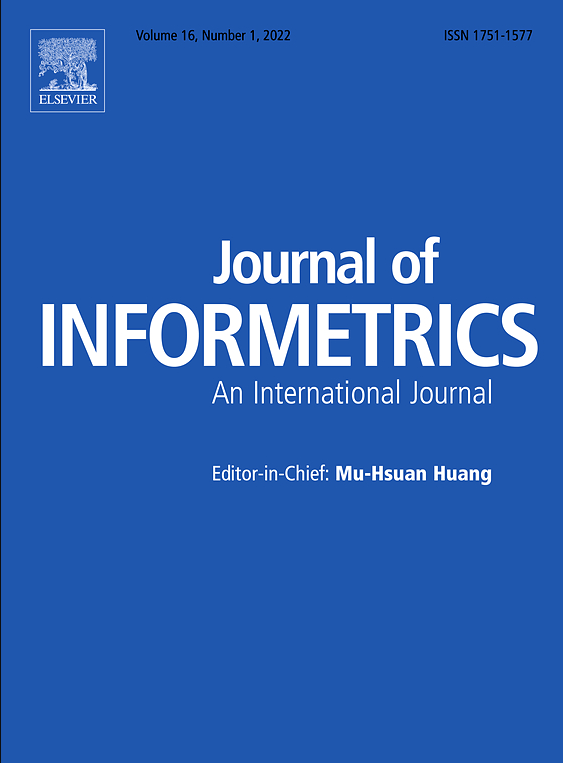Editorial Board
The trend of concentration in scientific research and technological innovation: A reduction of the predominant role of the U.S. in world research & technology
Corrigendum to “High- and low-impact citation measures: Empirical applications” [J. Informetrics 5 (2011) 122–145]
Revisiting the scaling of citations for research assessment
Jazz discometrics – A network approach
Exploring the nonlinear effects of patent H index, patent citations, and essential technological strength on corporate performance by using artificial neural network
Total influence and mainstream measures for scientific researchers
Stata commands for importing bibliometric data and processing author address information
McCall's area transformation versus the integrated impact indicator (I3)
Corrigendum to “The measurement of low- and high-impact in citation distributions: Technical results” [J. Informetrics 5 (2011) 48–63]
An international comparison of journal publishing and citing behaviours
Author bibliographic coupling analysis: A test based on a Chinese academic database
Sub-field normalization in the multiplicative case: Average-based citation indicators
Modifying h-index by allocating credit of multi-authored papers whose author names rank based on contribution
Aggregating different paper quality measures with a generalized h-index
Selection committee membership: Service or self-service
Development a case-based classifier for predicting highly cited papers
Estimating the diffusion models of crisis information in micro blog
Nemo iudex in causa sua?
Why Sirtes's claims (Sirtes, 2012) do not square with reality
Exploring the directed h-degree in directed weighted networks
The citation-based indicator and combined impact indicator—New options for measuring impact
The order in the lists of authors in multi-author papers revisited
How important is choice of the scaling factor in standardizing citations?
Exploring scientists’ working timetable: Do scientists often work overtime?
“Everything is plentiful—Except attention”. Attention data of scientific journals on social web tools
Further clarifications about the success-index
A further step forward in measuring journals’ scientific prestige: The SJR2 indicator
An extension of the h index that covers the tail and the top of the citation curve and allows ranking researchers with similar h
An empirical analysis of the use of alphabetical authorship in scientific publishing
Comparison of the citation distribution and h-index between groups of different sizes
Statistical inference on the h-index with an application to top-scientist performance

